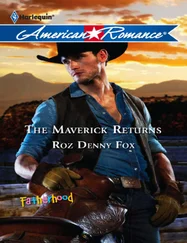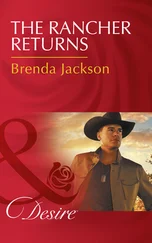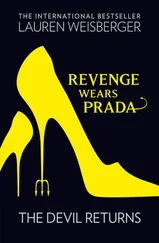“Mike,” Fontane said. “Michael.” He was getting nowhere. You had to hand it to the guy, though. A different sort of person would have turned around and looked at the other people in the room, trying to read anything he could from the less inscrutable faces. He might even have made a wisecrack-Fontane’s nature, most of the time. But Johnny held his spot. “Don Corleone. I have the greatest respect for you. I mean that. But this? This is just one show.”
Michael folded his hands on the desk. He didn’t even blink. Finally he cleared his throat. After the long stillness, it had the effect of a gunshot.
“What you do,” Michael said, “is of no concern to me. Get out.”
F RANK FALCONEhad a hundred grand on that fight at the Cleveland Armory. He was going to be ringside, he told Nick Geraci, even if it meant Geraci swimming to shore with Falcone lashed to his back. Don Forlenza offered the services of one of his boats. Laughing Sal Narducci pointed out that the bigger ones were already at the fight. There was nothing left but fishing boats unfit to go that far in open water during a storm.
It was not a long flight: maybe fifteen minutes. Geraci told them not to worry, he’d flown in conditions a hundred times worse than this-which of course he had not-and he went to ready the plane. He radioed the tower at Burke Lakefront Airport, which issued a staunch warning not to take off. He pretended not to hear.
The twin-engine airplane carrying Tony Molinari, Frank Falcone, Richard “the Ape” Aspromonte, Lefty Mancuso, and their pilot, officially listed as Gerald O’Malley, lifted off from Rattlesnake Island and into the dark sky. From the moment they were airborne, the flight was a struggle. He was so preoccupied with the challenges the storm threw his way that he wasn’t at all sure if there was anything wrong with the fuel. Probably there wasn’t. He’d checked both tanks before takeoff. He switched to the other tank not so much as a precaution but because he needed to focus on other things. As he strained though the soupy sky to see the lights of Cleveland, he thought he heard the engine sputtering, and without thinking he switched the tanks again and blurted something to the tower about sabotage, which, under these conditions, would have been difficult to assess for a pilot ten times more experienced than Nick Geraci.
The plane made its hapless approach toward Cleveland. The pilot’s last words to the tower were “ Sono fottuto. ” Translation: “I’m fucked.”
Then, a mile from shore, the plane plowed into the frothy brown chop of Lake Erie.
Geraci had been hit hard playing football in school, much harder in the ring. Once, at Lake Havasu, he’d been in a speedboat driven by his father and slammed into an aluminum dock. The hardest tackle, the most brutal punch, and that speedboat crash he’d somehow survived combined would have felt about half as bad as smacking into Lake Erie in an airplane.
The plane flipped. What felt like a moment later, Geraci was underwater. His door was jammed. He worked his legs free and started stomping a bigger hole in the glass of the windshield. The water was completely black. As he tried to get through the hole, a hand grabbed his arm. It was too dark to know whose hand it was. He tried to pull the man with him, through the hole in the windshield, to safety. The man was stuck. If Geraci hung on, they’d both die. He was about out of breath. The grip was strong, digging deep into the flesh of his arm. Geraci pried off the fingers, feeling and hearing the bones actually break.
Geraci swam free of the sinking wreck. He used the sound of the pounding rain to find the surface. His lungs spasmed and his Adam’s apple bucked. A tingling feeling shot down his arms. He felt a twinge, almost a draining feeling, at the top of his skull. He’d never make it to the top. He was going to breathe water. This was it. Have a good last thought, something worthy, but all he could think of was this filthy water, near home, and how this was where he was going to die. He kept swimming. His mother had loved to swim. His mother! Ah. That was a good last thought. He loved her. She was a good mother, a good woman. He could see her. She was younger than when he’d last seen her. Now she was sipping a martini and reading a movie magazine beside the public pool in his old neighborhood. She was dead, too.
Johnny Fontane, along with his very special guests Buzz Fratello and the lovely and talented Miss Dotty Ames, finished their boffo show at the Beautiful Oasis Room at the Castle in the Sand with a lengthy and hilarious medley of songs about booze, performed for a crowd that didn’t yet know thing one about the crash. It was a crowd, invitation only, largely made up of Teamsters officials from all over America, along with their wives (or more youthful simulacra). Michael Corleone had also, as an olive branch, invited a few select others-food, lodging, and a thousand dollars worth of chips, all on the house. Because it was a private party, even those who were ordinarily unable to set foot in Las Vegas were able to attend. For example: right by the stage was Don Molinari’s brother Butchie (who’d done time for hijacking and extortion) and several other top men from San Francisco. In the men’s room, trying to urinate and cursing inventively at his prick in Italian, was Carlo Tramonti (manslaughter; grand theft; arson; insurance fraud), the boss of New Orleans and a rising power in Havana. There was at least one member representing each of the other New York Families, each accompanied by women and bodyguards. The pale man in the gigantic sunglasses in the booth all the way in the back was Chicago’s Louie “the Face” Russo (possession of stolen goods; aggravated assault; bribing a federal agent), believed by some members of the FBI to be “in line for the still vacant position of ‘ capo di tutti i capi ’ of the entire so-called La Cosa Nostra.” Together, the appearance of all these people had provided enough cover to fly in several of the Corleones’ own associates from New York without arousing suspicion. Also noteworthy-particularly since they were right by the stage and had come in for so much good-hearted innuendo-laden needling-were those blushing, happy honeymooners, the former Miss Susan Zaluchi and her new husband, Ray Clemenza. C’mon, folks: Put your hands together. Let’s hear it for ’em.
In his own black velvet booth, Michael Corleone leaned back and took a long drag of his cigarette. He looked at his watch. It was Swiss, more than fifty years old. It had once belonged to a marine named Vogelsong, who’d used his dying breath to say he wanted Michael to have it.
By now, if everything had gone right, everyone on that airplane should be dead.
Michael had seen planes crash. Up close. It was all too easy for him to picture the terror on the men’s faces as the plane went down. He shook his head. He didn’t want to think about it.
Instead, he’d think about this: His plan had worked. He’d had setbacks, collateral damage, and midcourse corrections, but in the end, all had worked.
Now the Commission could meet. Hagen was wrong: no agreement would last unless it involved Chicago, but no peace involving Chicago would be in the Corleones’ best interest unless Louie Russo came to the table motivated. This crash should motivate him plenty.
Michael had probably never smoked a whole cigarette so fast or enjoyed one more. He lit another and inhaled deeply.
He’d done what he needed to do. Period. Because of that, he’d sleep just fine. After all this was wrapped up in a month or so, he’d take a vacation and sleep twelve hours a day. Had he ever, as an adult, taken a vacation? Those years he’d spent hiding in Sicily were a lot of things, but a vacation? No. During the war, he’d taken liberty- Hawaii, New Zealand. But a family vacation? Never. He and Kay and the kids should go to Acapulco. Maybe see Hawaii again, at peace. Why not? Clown around with Anthony and Mary the way Pop always made time to do, get buried in the sand, rub oil on Kay’s sexy back, maybe see if he could get her pregnant again. He’d wear flowery shirts and dance the mambo.
Читать дальше











